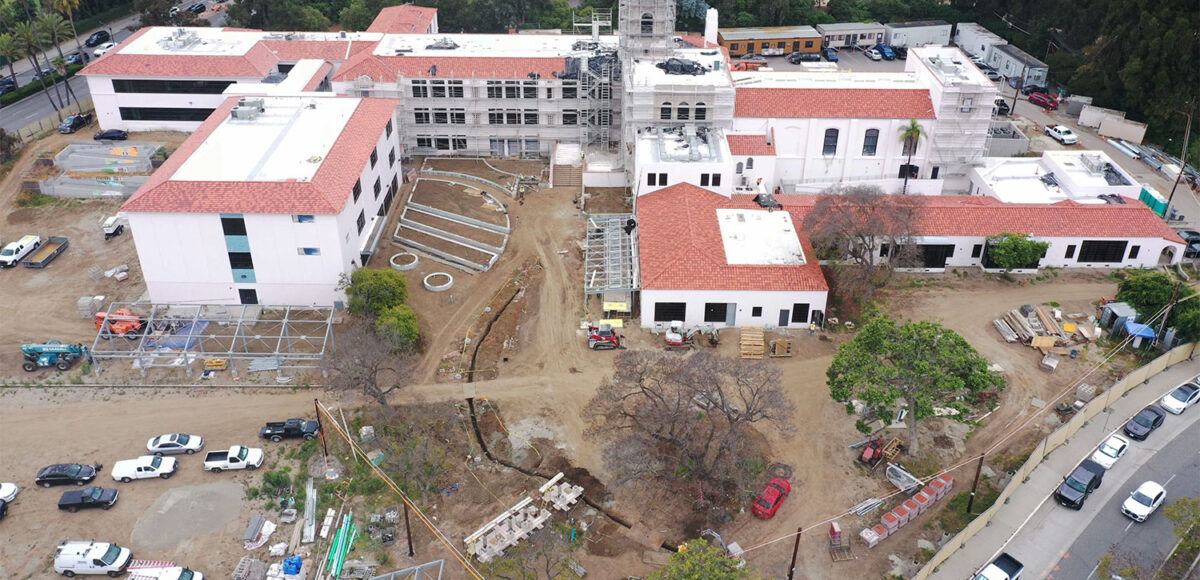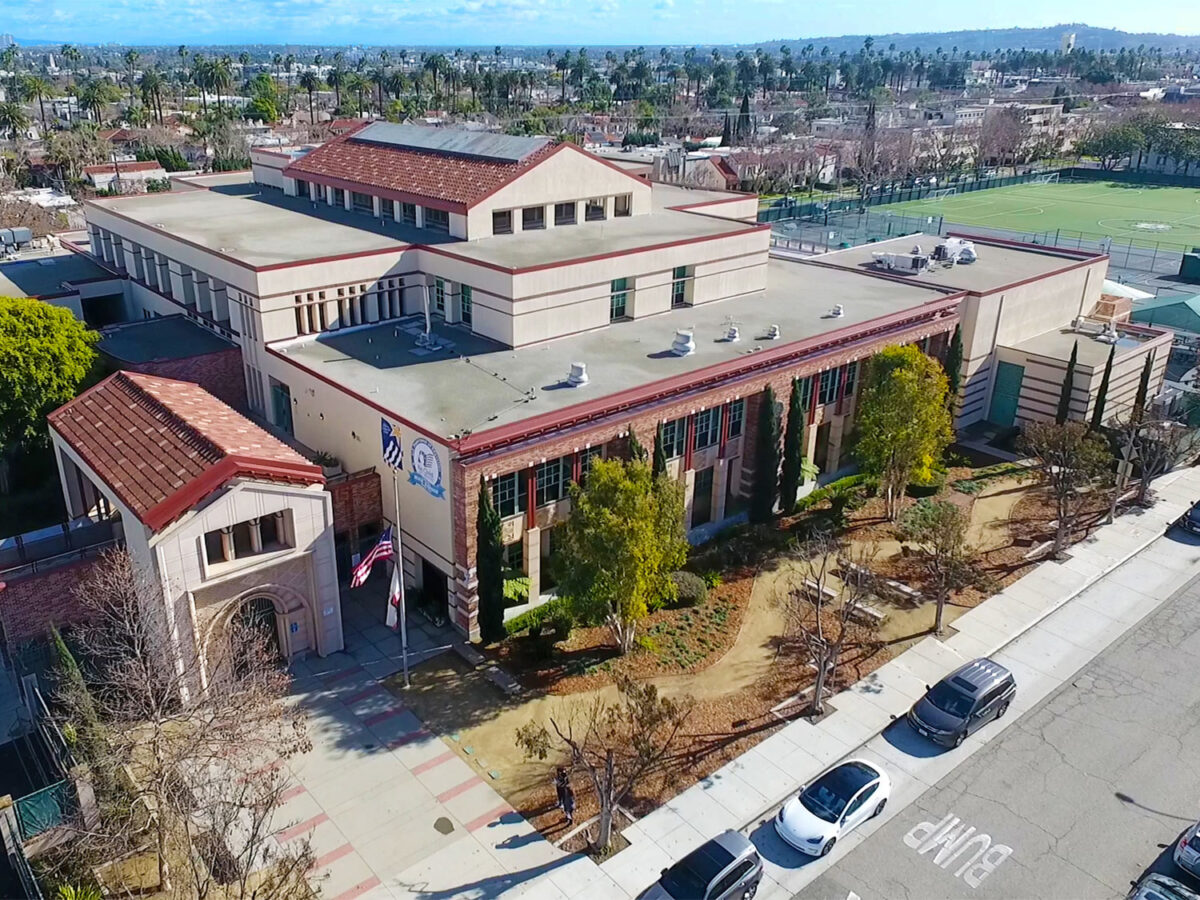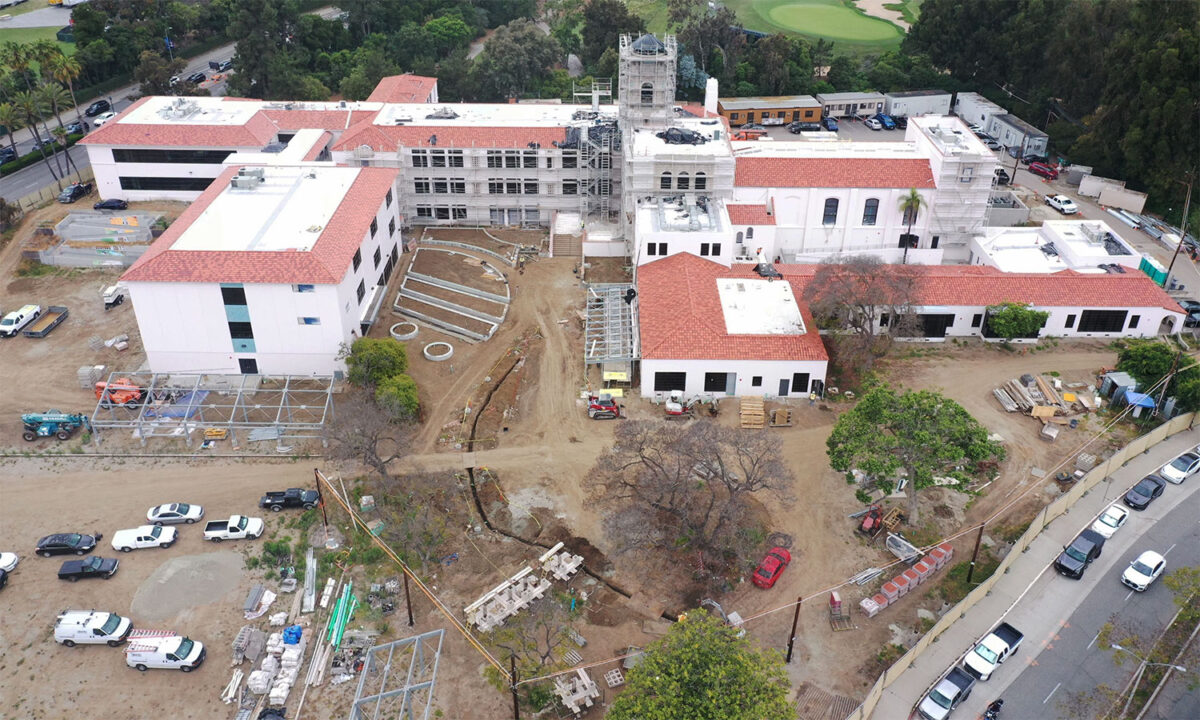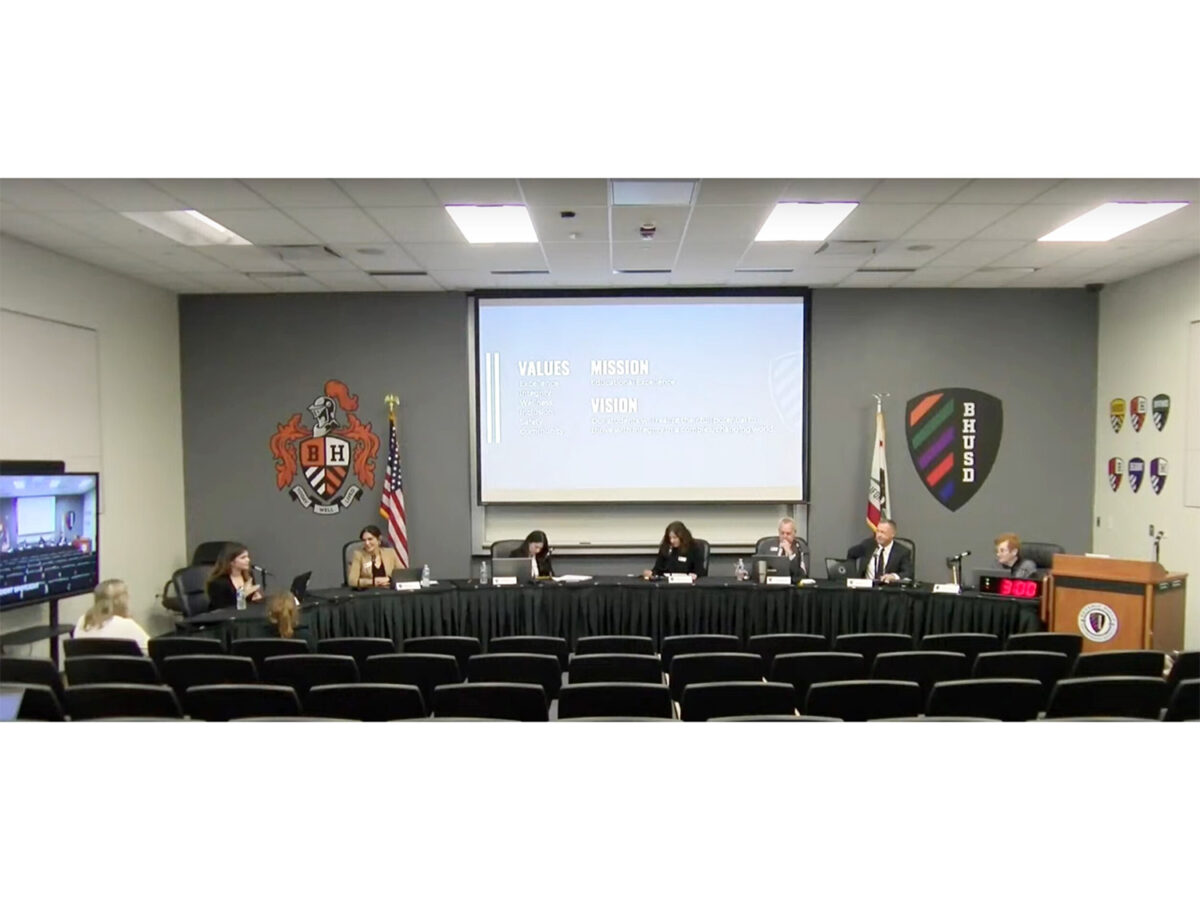The latest regularly scheduled meeting of the Beverly Hills Unified School District’s (BHUSD) Board of Education provided layout and cost updates associated with El Rodeo Elementary School’s soccer field construction while highlighting a district partnership with a youth soccer program.
Amin Solari, executive vice president of operations at Fonder-Salari, provided the detailed overview along with Will Karrat, the city’s executive director of construction services.
The Santa Clarita-based Fonder-Solari is the bond manager of the school district’s taxpayer-funded construction projects.
As part of upgrades to the El Rodeo soccer field, the district has partnered with American Youth Soccer Organization (AYSO) to make the field large enough—a regulation-length field, in fact—to accommodate AYSO programs. Under the Joint Powers Agreement between the City of Beverly Hills and BHUSD, AYSO, along with nearly 20 other programs, enjoys access to the school district’s fields and facilities.
AYSO is contributing $350,000 to the El Rodeo soccer field upgrade, according to School Board Member and Clerk Mary Wells.
“In partnership with AYSO, we worked with them to understand their needs. Now we’ll make a field that’s bigger and more usable for the school and the community at large,” Wells told the Courier. “It’s a great example of partnering with the city and a great example, since we changed our construction program, of how we’re more transparent and how we’re working together.”
Located at Whitter Drive and Wilshire Boulevard, in the western region of the district, El Rodeo Elementary School has been closed since June 2019. As part of a district reconfiguration, it is transitioning from serving grades K-8 to being a TK-5 school and currently is not being used in any capacity. The school opened in 1927.
When the school closed three years ago, the majority of its students were transferred to Hawthorne Elementary School and Beverly Vista Middle School. As the school district does not see a need to operate more than two elementary schools, Hawthorne will likely be repurposed once construction at El Rodeo is complete and the school reopens in June 2024.
The construction to the El Rodeo soccer field is part of a larger multiphase modernization and retrofit effort, funded by a $334 million bond. The seven-phase project has focused on equipping the school with state-of-the-art facilities, restoring the building’s façade and theater, upgrading the play courts and sports fields as well as incorporating additional site improvements.
On the new-and-improved soccer field, those who are ages 12-and-under will be able to use the entire length of the field while those 10-and-under will use the field from side-to-side, cutting the field in half and essentially creating two fields, Karrat said during the June 13 meeting, pointing to an artistic rendering of the field and school campus.
Karrat and Solari’s presentation also outlined the reviewed and negotiated total cost for the work at El Rodeo’s soccer field—a sum of $498,593.94. The cancellation of proposed concrete bleachers accounted for revised costs to the soccer field project.
“The bleachers were deleted as a cost saving measure and because it was determined that bleachers of that magnitude were not needed on an elementary school campus,” Karrat told the Courier.
The city, Solari said, will receive a $102,115 credit for the deletion of the bleachers. At its next meeting, the school board will be presented with a Contingency Allocation Request for this amount.
Upgrades to the soccer field include adding infrastructure for power outlets to accommodate for lighting around the field, regrading of the area, reconfiguration of the hardscape and a new underground draining system. It will also include the installation of bricks, which School Board President Noah Margo called a “great opportunity” for donors seeking naming gifts.
ProWest is the contractor on the project.
Members of the school board authorized Fonder-Solari to move forward with the El Rodeo soccer field upgrades.
“We already authorized them to move forward, not to make any delay on the project,” Margo said.
Assistant Superintendant Raphael Guzman discussed finances connected to the district construction projects. As previously reported, the district allowed its contract with Team Concept Development Services (TCDS) to expire and is currently contracting with Sandy Pringle Associates for Division of the State Architect (DSA) inspection services. During the meeting, Wells wanted to know what the financial impact was of changing from TCDS to Sandy Pringle.
While Guzman noted it was difficult to compare the two companies—“it’s two different entities,” he said—if you took the two companies’ hourly rates and multiplied it by the same amount of hours, the district was saving money working with Sandy Pringle.
In a phone interview, Wells said she was encouraged by Guzman’s update, saying the district has saved approximately $500,000—“or half of what they would’ve paid” had they kept contracting with TCDS.
DSA inspectors provide design and construction oversight to K-12 public schools. With Sandy Pringle, the district is now working with independent DSA inspectors, which is what the district ought to have been doing all along, Wells said.
“That’s the standard,” she told the Courier.
The school board is expected to approve the adopted 2023-2024 budget during its next meeting, scheduled for June 27.
Finally, the meeting also included projections of future BHUSD enrollment—for the upcoming 2023-2024 academic year, the BHUSD enrollment estimate is 3,097 students—as well as a budget review. District officials projected a 2023-24 budget of approximately $17,425,039, down from last year’s budget of approximately $21,542,063.






